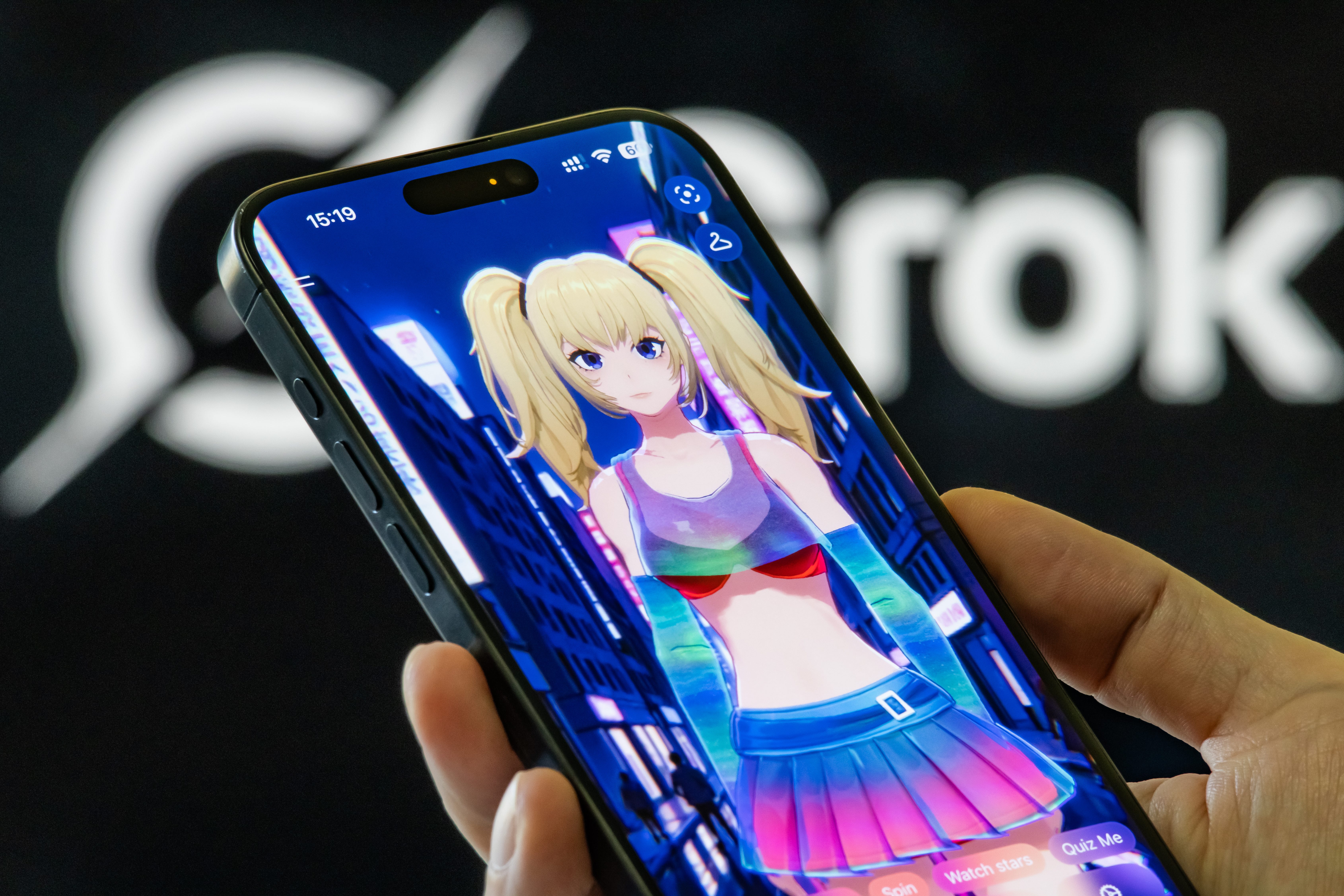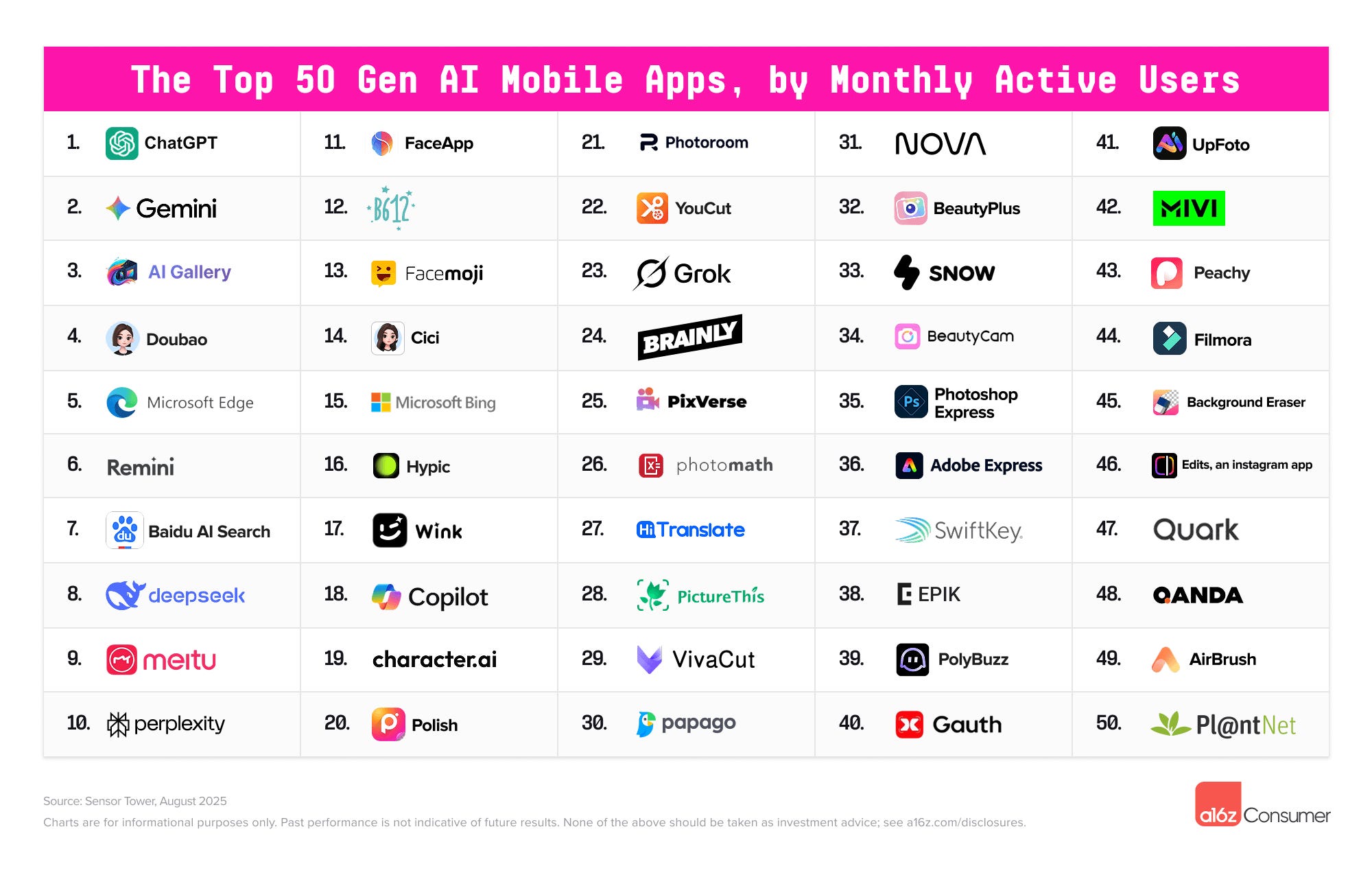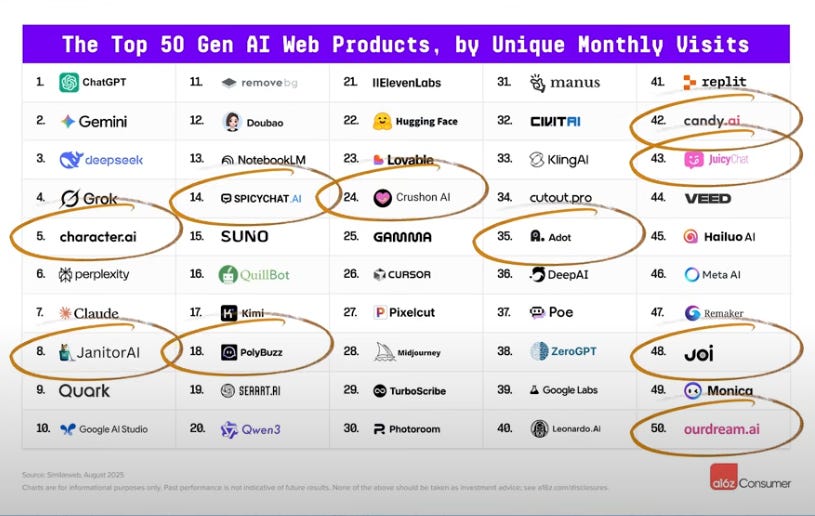
illustration by Cheng Xin/Getty Images
Take a guess: What’s the No. 1 most popular AI app and website? OK, that was easy, it’s ChatGPT.
Andreessen Horowitz just published its semi-annual list of the top AI products, and it offers some surprises beyond Chat GPT and Gemini.
The top 50 list is split into two versions: web products and apps. Although ChatGPT tops both versions, there are some real differences the further you go in the list.

Andreesen Horowitz
According to Az16 partner Olivia Moore, who compiled the lists, the web data is based on analytics from SimilarWeb and app data from Sensor Tower. It spans just the last six months.
The first thing that jumped out to me on both lists is how many of these I hadn’t heard of — even names quite high on the list. Part of that is because some of these are mainly for Chinese users, like Doubao, which is made by ByteDance and ranked No. 4 on the list for mobile apps.
In a YouTube video, Moore explains that this is because certain popular AI tools like ChatGPT are banned in China, so there are other general-use AI tools that replace them for a large number of Chinese users. Quark, Alibaba’s assistant, is one of these, as is Kimi, all in the top 20. Moore points out there’s another category of products built in China, but meant for use by the rest of the world, like DeepSeek, Kling, and SeaArt.
A few of these popular apps aren’t totally groundbreaking new vibecoding tools; they’re basically face filter apps for cleaning up your selfies (FaceApp, BeautyPlus, a few others). I was personally pleased to see that the plant-identifying app I use in my garden, Pl@ntNet, made it to No. 50 on the app list — beating out Meta AI’s stand–alone app, lol.
But what stuck out to me most was just how many of these top 50 products — for both web and app — are companion chatbots. In this image, Moore highlighted all the apps that are companion chats for web — and it’s 20% of the list:

Andreesen Horowitz
And keep in mind: companion chatting is one of the most common uses for ChatGPT, the No. 1 product on the list. Elon Musk’s Grok, also pretty high up for a new entrant, is also heavily promoting its new “Ani” and other character companion chat features.
These stuck out to me in particular because the potential perils of AI companion chatbots — especially for young people — have been in the news lately. The New York Times had a story this week about a teenage boy who committed suicide after talking to ChatGPT for months; his parents are now suing OpenAI. (The company said in a blog post Tuesday that it was working on new safeguards for handling sensitive situations.)
Meta is also facing scrutiny for how its AI products chat with teens and kids after a Reuters report revealed internal guidelines that said it was OK for AI to romantically chat with kids. (A Meta spokesperson said the guidelines have been changed, and it never should have been allowed.) Now, several senators are demanding answers from Meta.
What I find somewhat eyebrow-raising is that companion chatting, as fraught as it can be, seems to be one of the most popular (and lucrative) things for an AI company right now.
I have to wonder if public opinion on these companion AI apps will turn in the next year or two — and make these lists possibly much different in future years.
The post The most popular AI apps might not be what you’d expect appeared first on Business Insider.




